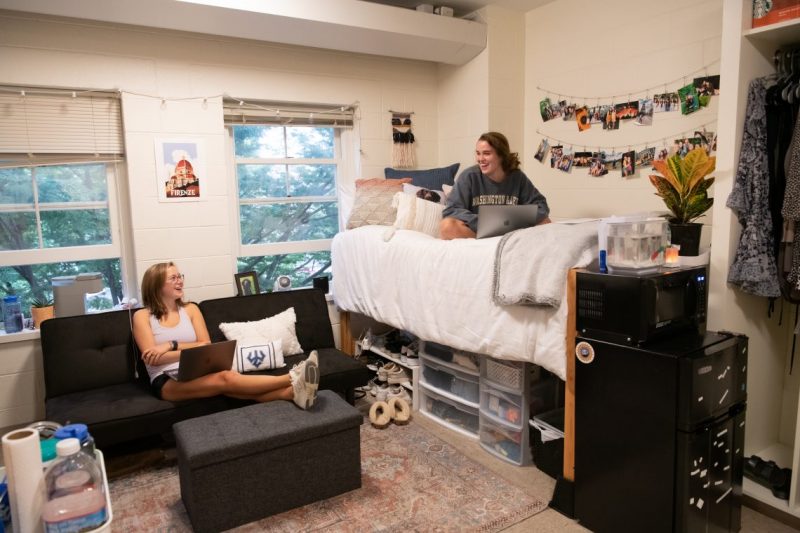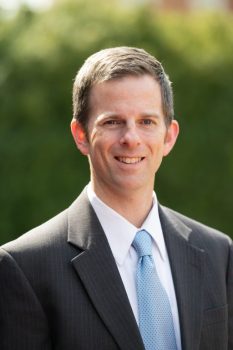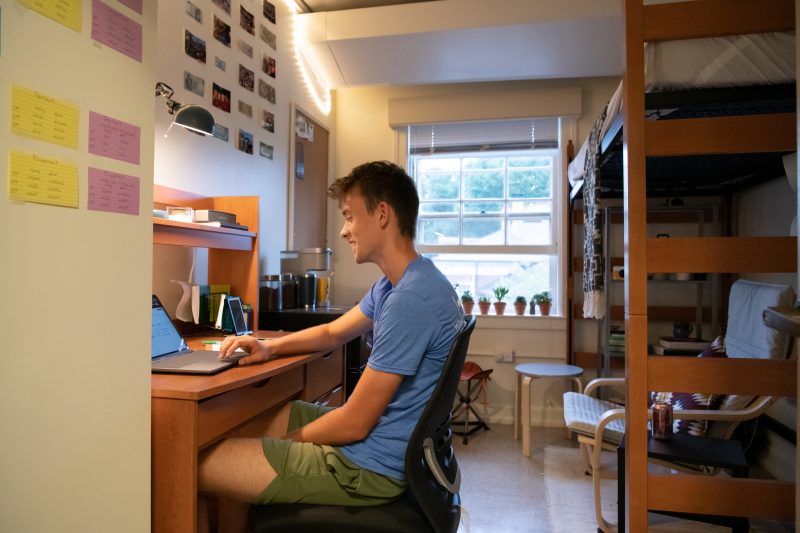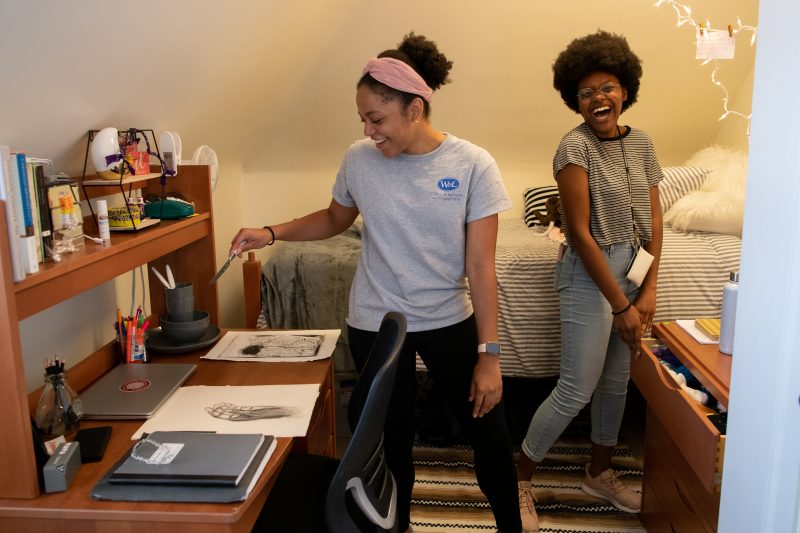A Place to Call Home Washington and Lee University matches incoming students to halls and roommates by hand to create communities in which students can thrive.
“A great roommate match allows someone to expand their network and feel supported in their environment.”
~Jason Rodocker, Dean for First-Year Experience
After the first-year housing questionnaires come in, Jason Rodocker goes to work.
On the floor of his office, Washington and Lee University’s dean for first-year experience re-creates the school’s two first-year residences, Gaines Hall and Graham-Lees Hall, with sticky notes. Each piece of paper has the details of a hall written on it: coed or not, quiet or loud, number of singles, number of doubles, number of males, number of females. Room by room, Rodocker matches students to those halls, building communities that will support them through their first year of college.
Many colleges and universities use an automated matching system to determine roommate pairings, but Rodocker’s hands-on approach is part of W&L’s culture of intentionality in the first-year experience.
“There cannot be a school that has any more personal touch,” he said.
W&L creates its matches using its housing questionnaire, which measures between 20 and 30 variables and gets reevaluated annually to see whether it could be more effective.
“There’s a lot that comes into consideration,” Rodocker said. “Do they go to bed before or after midnight? How many hours of sleep do they typically get? Are they a light sleeper? Do international students have a roommate that wanted to room with an international student?”
The goal is to create spaces in which students can thrive. “So much of the transition to college is going to have inherent challenges. We want the living environment to be as comfortable and supportive as possible. Generally, we’re able to match everybody with almost everything they want.
“We don’t designate in advance which halls are going to be coed or substance-free or anything else. If there are 20 people that wanted a not coed, sub-free experience, and 14 of them want doubles and six of them want singles, we can find the hall that fits that.”
Rodocker finds that working by hand gives him a holistic understanding of the first-year class. “By the time I do this experience with housing and then do it again with advising, I’ve developed a pretty good feel for who the first-year class is,” he explained. That helps him assist students throughout the next year, during which he’ll be their primary initial contact if they’re struggling.
Not all first-years at W&L want roommates, but Rodocker emphasized that even students in singles get placed in halls that suit them. “If someone wanted to be on a sub-free, not coed hall, then that’s a particular type of experience. And the resident adviser matched with that hall is one we think is going to be effective at that experience.”
RAs also provide an on-ramp to the W&L community, organizing programming throughout the first year and helping students connect. “The RAs work on blending the halls. We want the living experience to be comfortable and supportive, but we also want to challenge you to meet people with different perspectives, learn from those differences and grow through that.”
Around half of the first-year class’s approximately 200 roommate matches are based on students requesting to live with people they met during admitted student days or on social media. Rodocker ends up making the other half. “We have very few roommate switches,” he said, and those requests come roughly equally from matches students make and those he makes. “Three to five is a typical year.”
In large part, he said, the steadiness he sees in first-year housing is a reflection of the student body. “All of our students come for similar reasons: high academic quality, the honor system, the community. Roommates can expect that the other person is capable and interesting.”
While some roommates do become best friends, that isn’t necessary for a good first-year experience. “A great roommate match allows someone to expand their network and feel supported in their environment,” Rodocker said. “They just have to understand and appreciate what the other is going through, be respectful of each other and work through conflicts in a calm and compassionate way. Everybody wants a place they can feel comfortable calling home.”
 Roommates relax in their first-year dormitory.
Roommates relax in their first-year dormitory. Dean for First-Year Experience Jason Rodocker
Dean for First-Year Experience Jason Rodocker Even students in singles get placed in halls that suit them.
Even students in singles get placed in halls that suit them. First-year students get settled in Graham-Lees Hall.
First-year students get settled in Graham-Lees Hall.
You must be logged in to post a comment.